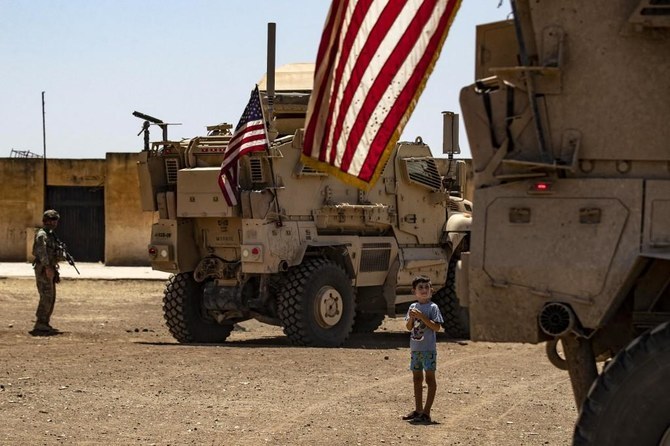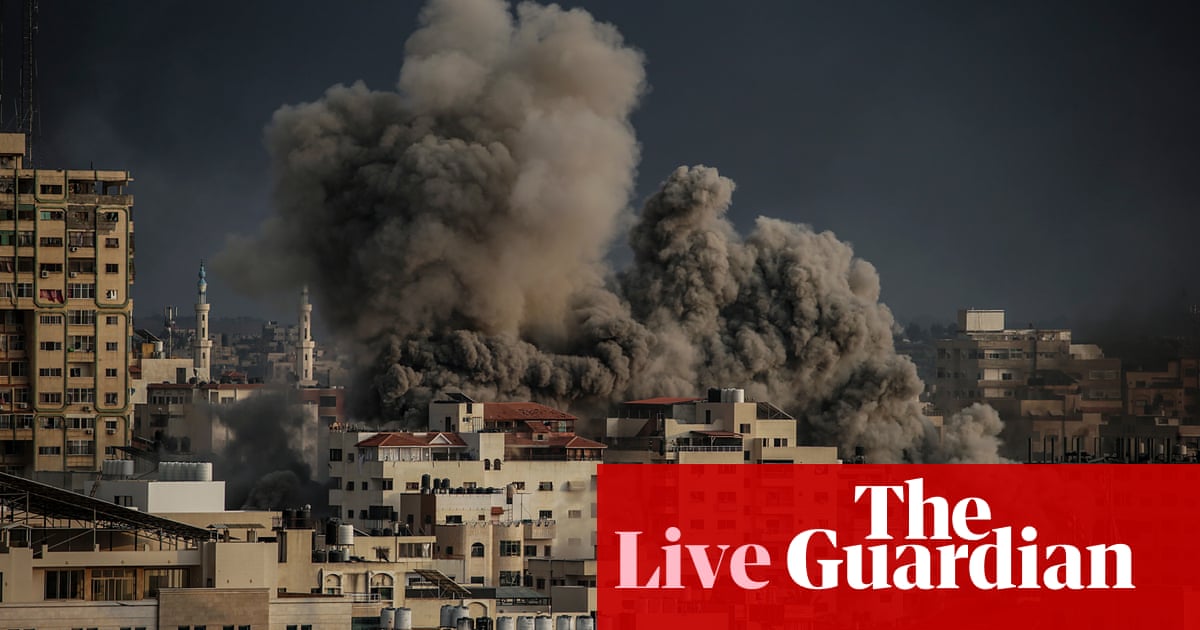
Over the past couple of years it has seemed increasingly inevitable that renewed regional conflict will ultimately erupt, with Iran and its allies pitched against Israel and America. Following a period when southern Lebanon, or perhaps Iraq, looked like potential flashpoints, attention is turning to the battle for control over eastern Syria as a conduit for broader regional influence.
The recent Washington Post publication of leaked US intelligence documents exposed how Iran is preparing militants in Syria for a new phase of lethal attacks against US troops there, while also working with Russia on a broader strategy to drive Americans out of the region altogether.
According to these documents, as part of Bashar Assad’s aspirations to reassert control in the east, in November 2022 a high-level meeting of Russian, Iranian and Syrian military and intelligence officials agreed to establish a “coordination center” for waging a campaign against US assets.
This three-way meeting apparently included a strategy for mobilizing a grassroots campaign of attacks against American forces. Iran has sought to establish permanent hubs of grassroots support in eastern Syria through recruitment into local forces, paying off particular tribes and elites, and setting up religious schools and institutions to exert ideological leverage. The new strategy seeks to mobilize these proxies as an active insurgency against the US presence.
Nearly 1,000 US forces have been retained in eastern Syria, ostensibly to fight Daesh, but more specifically to obstruct the ambitions of Iran-backed militants. The major US-controlled base at Al-Tanf in the Iraq-Jordan-Syria border area has been a key element in thwarting Damascus, Moscow and Tehran’s aspirations to assert control in the east.
Damascus and Moscow have repeatedly accused the US of stealing Syrian oil – although in practice revenues from these eastern fields largely go on funding US-backed Kurdish forces. Syria isn’t one of the world’s largest oil producers; before 2011 it pumped out about 400,000 barrels per day, around 25 percent of the regime’s budget. Nevertheless, Assad and the various other players are unsurprisingly anxious to get their hands on this.
There are ample indications that the Syrian conflict is entering a new phase, as Assad and his allies — emboldened in the west — seek to reassert themselves and wrong-foot the Americans in the east.
Baria Alamuddin
These documents furthermore indicate that the Quds Force of the Islamic Revolutionary Guard Corps is training paramilitaries to use more powerful armor-piercing roadside bombs, which are designed specifically to target US military vehicles and proved highly deadly in Iraq after 2003. In trials of these weapons by Hezbollah and Quds Force, conducted near Damascus in early 2023, these weapons penetrated 7.5cm-thick tank armor at a range of just under 25 meters. Militancy expert Michael Knights warns of a “sea change in (militants’) risk-acceptance in killing Americans in Syria.”
A militant drone strike in March that caused US casualties and triggered a succession of tit-for-tat strikes was just one of dozens of drone and rocket attacks against US assets and allies in eastern Syria. Militants seek to retaliate against Israeli airstrikes in the west by making the Americans suffer in the east.
In the context of soaring geopolitical tensions around the Ukraine conflict, Russia has actively sought to discomfit US forces in Syria by violating deconfliction agreements, flying over American bases and harassing US aircraft, even as Moscow has drawn down its Syrian capabilities in order to throw everything into the Ukraine arena. Although Tehran — as the leading supplier of arms to Russia — has moved more closely into Moscow’s orbit, the leaked US intelligence documents show the ayatollahs venting frustration at a high-handed Kremlin excluding them from Russian-led negotiations with Turkey, while allowing Israel to continue hitting Iran-aligned targets.
Al-Hashd Al-Shaabi militants in Iraq have spent the past few years consolidating control over the Syria-Iraq border region, including measures such as elaborate fortifications centered upon Abu Kamal, comprising kilometers of deep underground tunnels for storing missiles. They aspire to control the east-west transit of munitions, drugs and contraband through Syria to the Mediterranean. Although these forces are nominally sided with Assad, they are understandably reluctant to see a resurgent Damascus cramping their style.
Meanwhile, Daesh continues to stage regular attacks against Kurdish forces and other targets, and there are indications that this terrorist group is actively masking the true extent of its Syrian capabilities, with many militants laying low in the vast Badia desert region.
The killing of about 250 truffle hunters in a flurry of incidents in the Syrian desert this spring had been widely blamed on Daesh. But experts believe that the worst of these killings were probably due to Iran-backed militias seeking to monopolize this vast region. Violent clashes even erupted in 2022 between Russia-backed and Iran-backed militias, each seeking to establish exclusive control over key routes and strategic locations.
The city of Deir Ezzor lies along the dividing line of control between Damascus and eastern Kurdish forces. Assad has sought to curry favor with local tribes through a complex reconciliation process, while pro-Tehran forces have exploited the fragile situation to buy up large amounts of land and property in this wider area.
There are ample indications that the Syrian conflict is entering a new phase, as Assad and his allies — emboldened in the west — seek to reassert themselves and wrong-foot the Americans in the east.
What all these parties — Tehran, Washington, Russia, Daesh, Israel and Turkey —have in common is that they are pursuing their own foreign agendas on Syrian soil. None of the players in this globalized great game has any serious or sincere aspiration to bring peace and stability to Syria. The only end point to this quagmire is when Syrians can one day govern themselves under a leadership that respects their rights, freedoms and sovereignty. We may be in for a long wait.
• Baria Alamuddin is an award-winning journalist and broadcaster in the Middle East and the UK. She is editor of the Media Services Syndicate and has interviewed numerous heads of state.












